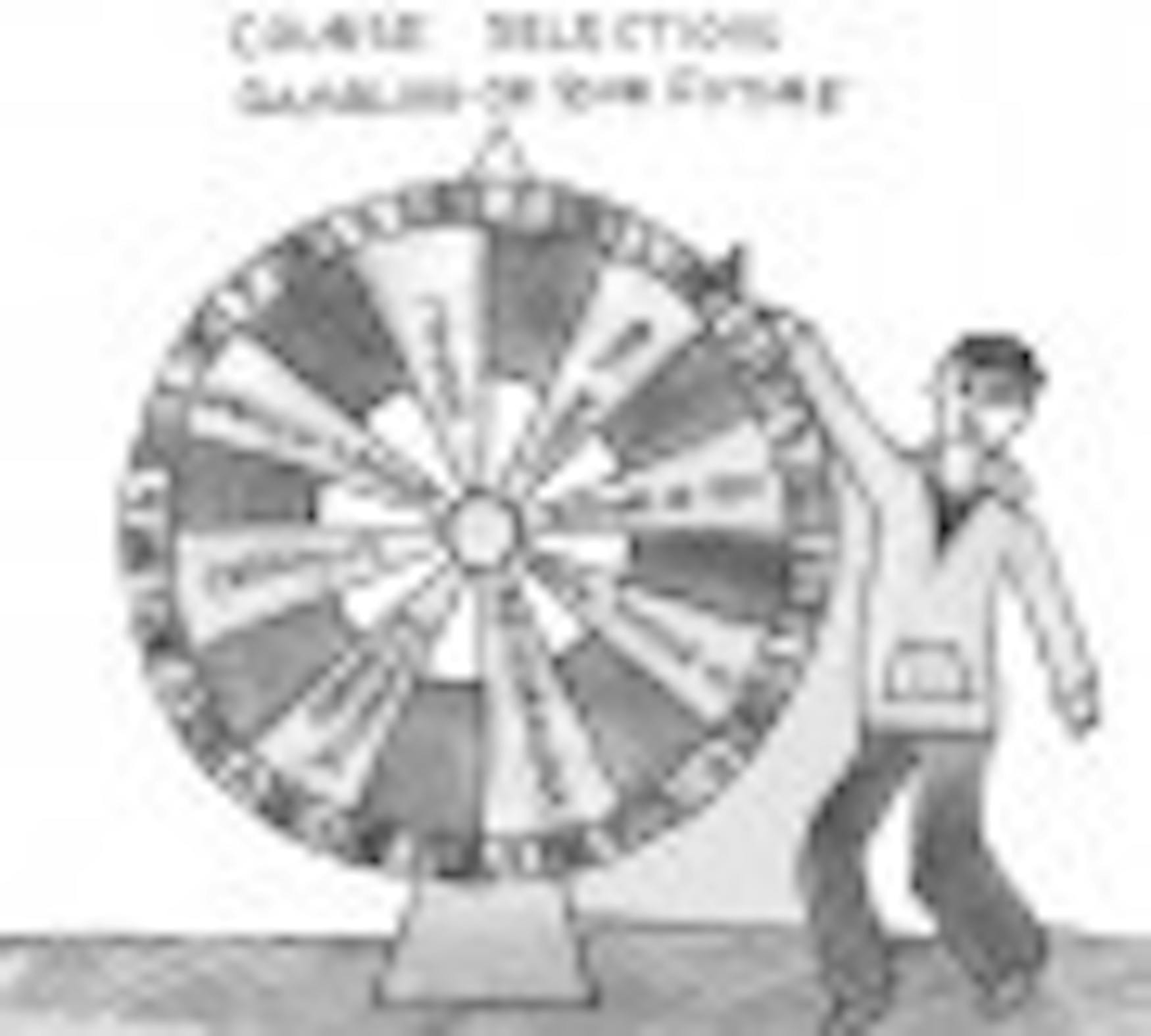Reap the benefits of taking a course for interest
I have always been overwhelmed by the registrar's course selection process. This is not because of the vast amount of classes, but rather because of other restrictions such as major requirements, time constraints and class size. However, as a senior studying Philosophy and Politics at Brandeis, I have come to realize that there are 10 to 20 classes that I never took because of these restrictions, and I may never have the chance to study those subjects again.
One of the biggest problems that I have with the institution we call "college" is that I feel I am not truly being educated: Instead, I am being pigeonholed in a specific and rigid path.
This idea is not something new; Sir Ken Robinson, an author, speaker and international adviser on education outlines this assertion in a Technology, Entertainment and Design talk titled, "Ken Robinson Says Schools Kill Creativity."
In his TED talk, Robinson points out that the educational system we follow today is replicated after the industrial revolution's model of factory economics. It is designed to manufacture students rather than cater to individual intellectual preferences, and in many ways, it does not allow for flexible creativity and the true pursuit of passion, excellence and sheer curiosity.
So, by last semester, I decided to finally do something about it.
Instead of actually registering for Prof. Richard Gaskins' (PHIL) course, "Philosophy of Economics," I committed myself to sit through the class for the entire semester in addition to my fall 2010 semester course load. Although this is similar to auditing a class, which is not officially allowed at Brandeis, the difference is that it will never appear on my transcript.
I never had to write any of the papers, take any of the tests or sit for the final exam, and as a result it was one of the most rewarding experiences I have ever had at Brandeis. I just wanted to learn for the sake of learning and did not care in the slightest about any grade or official recognition on my transcript.
This is not to say that I do not care about my grades. I am proud to say that I have worked very hard to earn them-but join me with this idea for a second.
My influences for the decision to sit in on the class were individuals such as Albert Einstein, George Orwell, Bill Gates, Mark Zuckerberg and Steven Spielberg. These people have contributed revolutionary ideas to society despite dropping out of college or never attending at all.
They pursued knowledge or their passions for their own sake and did not rely on an institution or system to dictate how they were going to achieve their accomplishments and goals. They followed their intuitions and supplemented what the "system" and strict guidelines either failed to provide or, at times, impeded.
The biggest criticism against this, of course, is that these extraordinary people are the outliers, the rare exceptions. And I completely agree, which is why I didn't actually take the initiative to completely throw away my college degree.
But I did use one role model in particular to help me make my course selections for the fall 2010 and try, to some degree, follow in his footsteps: Apple, Inc. CEO Steve Jobs.
Jobs dropped out of Reed College in 1972 just after a few semesters, yet he continued to sit in on a calligraphy course that-get this-he really wanted to take. He felt college was just too expensive and that all of the required courses he needed to take were not really helping.
The calligraphy, however, was something he was simply curious about. He was able to participate without worrying about other coursework.
The benefit? When he was working on the first Macintosh computer 10 years later, that very information he learned helped him drastically raise the standards of word processing when he designed the first-ever computing system with varying typography and fonts-information that he had first learned in his calligraphy class.
Admittedly, I am not entirely sure how the information in "Philosophy of Economics" will contribute to my future. At the very least, I am incredibly grateful for what it gave to me in my first semester of senior year.
I sat and paid attention without jotting down every word. I was able to appreciate the intricacies of one area of study without concentrating on the others that did not interest me as much. I even took the opportunity to go to Gaskins' office hours in which, on several occasions, we had some of the most eye-opening discussions I have ever had with a professor.
Issues and questions that had been bothering me could finally be discussed without any hesitation or concern about how "stupid" these questions might appear or how "off track" they may be from the actual class.
As it so happened, one of the issues that was brought up in our class was questioning the incentive of the educational grading structure. Is competing for grades a proper incentive and indicator of what a student has actually learned?
While I am not in any way arguing for a complete overhaul of the institutional guidelines and means of assessing and differentiating between students, I would like to argue that I am an example of just how absurd it is to associate receiving a grade or a transcript notation with the true acquisition of knowledge.
And as it so happens, it was the best class I've never taken.
Editor's note: The writer is a Roosevelt Fellow



Please note All comments are eligible for publication in The Justice.